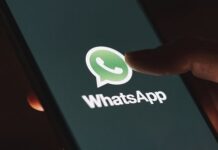Facebook announced on Monday that the company is planning to install two new underwater cables to connect Singapore, Indonesia, and North America in a project with Google and local telecommunication organizations to increase the internet connection range between the countries.
“Named Echo and Bifrost, those will be the first two cables to go through a new diverse route crossing the Java Sea and they will increase overall subsea capacity in the trans-pacific by about 70%,” stated Facebook vice president of network investments Kevin Salvadori.
He further stated that the “Echo” is being built in collaboration with Alphabet’s Google and Indonesian telecommunications’ company XL Axiata and the project is expected to be completed by 2023. The second cable, Bifrost, which is being constructed in partnership with Telin, a subsidiary of Indonesia’s Telkom, and Singaporean conglomerate Keppel and is expected to be finished by 2024.
Read more: Facebook is planning to launch 3 new Projects in Pakistan
The two cables, which will require regulative approval, follow previous investments by Facebook to strengthen up connectivity in Indonesia, one of its prime five businesses worldwide.
In addition to it, more than 73% of Indonesia’s population of 270 million use the internet. However, the majority of the population access the web through mobile data, with less than 10 percent using a broadband connection, as per the statistics offered by the 2020 survey conducted by the Indonesian Internet Providers Association.
Kevin Salvadori also mentioned that they are working with partners and regulators to satisfy all of the concerns that people have, and they look forward to that cable being a valuable asset for the organizations and people.
Moreover, the 12,800 km PLCN, which is being financed by Facebook and Alphabet, had encountered U.S government opposition over plans for a Hong Kong conduit. It was first proposed to connect the United States, Taiwan, Hong Kong, and the Philippines.
Facebook stated earlier this month it would drop efforts to connect the cable between California and Hong Kong due to the current concerns raised by the US government about direct communication links between the United States and Hong Kong.
Source: Reuters


























